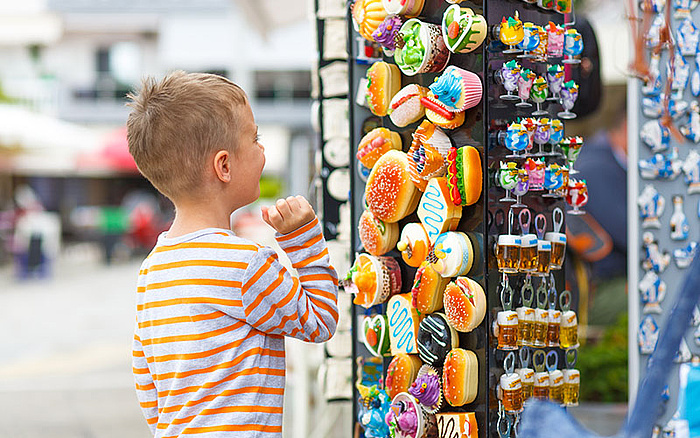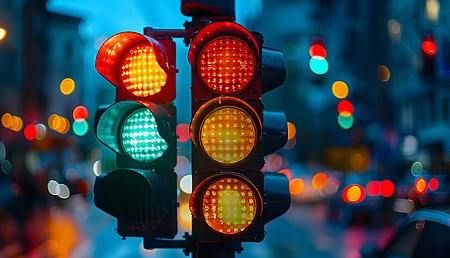
Coconuts and counterfeits – product and trademark piracy under palm trees
Summer is in full bloom, ushering in the vacation season and the thrill of local wares and exotic souvenirs. A little shopping is many a holidaymaker's preferred way to cool off from all the sun and sand, so picture the scene: stepping away from the beach to find a Gucci bag for 30 euros instead of 3,000, a Rolex for 50 dollars instead of 5,000 or the latest national football team shirt for 20 pounds instead of 120. On the seafront, countless stalls and street vendors offer what appear to be authentic branded goods at unbelievable prices.
Still, if something seems too good to be true, it probably is. These counterfeit items often look so genuine that it is nearly impossible to distinguish them from the original products at first glance. Most of these fakes come from Asia, particularly China, and while they might look convincing, their quality does not live up to the real thing, nor are their manufacturing practices held to the same ethical standards.
Considering the criminal activities often funded by fake goods, can the souvenir hunter bring the counterfeit football jersey back from his holiday? It depends.
In Germany and Austria, for example, the purchase of counterfeit products is not prohibited as long as their value does not exceed the customs limit of €430 and the counterfeits are not resold. The private purchase of counterfeit items is, therefore, permitted. However, commercial trade in counterfeits is illegal, meaning manufacturers and retailers can be penalized with a fine or even imprisonment. By contrast, in neighboring Italy, France and Luxembourg, it is generally forbidden to buy counterfeit products. Here, even private shoppers can face heavy fines.
Businesses and rights holders pick up the tab
Product and trademark piracy is nothing new but still booming due to supply and demand. The infringement of Intellectual Property (IP) rights, including trademarks, patents and design rights, leads to considerable annual economic losses.

This year, more than a fifth of all retail purchases are expected to take place online, or about $6.3 trillion USD. Unfortunately, the remoteness of internet shopping makes it harder to distinguish genuine products from fakes.
A study published by the European Union Intellectual Property Office (EUIPO) in January 2024 reveals that counterfeit products have a significant financial impact on various industries within the European Union. The clothing, cosmetics and toy sectors are particularly affected, collectively losing €16 billion and almost 200,000 jobs a year to counterfeiting between 2018 and 2021.
Though strongly associated with luxury goods, counterfeiting is a widespread issue that extends to everyday items such as food, consumer electronics, medicines, pharmaceutical products and pesticides. It even affects essential spare parts for cars, trains and airplanes, with the rise in counterfeit products corresponding to growing consumer demand and the ease of online purchases.
The 2022 edition of the Intellectual Property and Youth Scoreboard, also published by the EUIPO, revealed that more than half (52%) of EU citizens aged between 15 and 24 said they had bought at least one counterfeit product online in the preceding year. Of the same 22,021 surveyed, 37% said they had done so intentionally. Price, consumer apathy and the perceived lack of any distinction were the most important factors in the purchase of fake goods.
Despite this buyer disengagement, counterfeit products can pose serious health, safety and environmental risks. Moreover, when organizations have their IP rights infringed, jobs are jeopardized and innovation is stifled, with the reputational damage caused by product piracy being particularly harmful. In many cases, consumers cannot distinguish between a counterfeit and the original product, meaning they are often disappointed by realistic but inferior-quality imitations.

When shopping for keepsakes, standard holiday mementos are less likely to upset customs officials or your bank balance than dubious luxury goods and big-brand bargains.
Sending counterfeits packing
Given the fiscal, health and brand dangers, how can companies effectively protect themselves against product and trademark piracy?
- Secure IP rights: Companies can safeguard their products by acquiring IP rights, including patents, designs and registered trademarks. These rights provide a robust legal framework for enforcing ownership and a strong defense against unfair competitive practices such as piracy. Only those with registered rights can effectively enforce their claims.
- Monitoring the market: Market surveillance is essential to recognize potential infringements at an early stage and act accordingly. In this way, reputational injury, in particular, can be prevented or deflected.
- Cooperate with authorities: Companies can collaborate with local and international authorities to combat product piracy through information exchange. At the EU level, Regulation No. 608/2013 on the enforcement of IP rights outlines measures for customs authorities to prevent the import of counterfeit products from third countries. Under certain conditions, customs authorities can confiscate items suspected of being counterfeit or pirated. IP rights holders can share information about their products with the enforcement authorities to make distinguishing between fake and authentic goods easier. One scheme that facilitates this communication is the EUIPO's IP Enforcement Portal (IPEP).
- Seek support from specialists with professional expertise: For over six decades, Dennemeyer has been a trusted partner in the protection and enforcement of IP rights. Our extensive international network and deep understanding of the IP field make the Dennemeyer Group an ideal ally for your company in the fight against counterfeiting.
Companies and rights holders must proactively engage in the protection of their IP. This involves legal measures, strategic partnerships with local and international authorities, awareness campaigns to educate consumers about the risks of counterfeit products and continuous monitoring of markets for potential violations. By taking a multi-faceted approach, businesses can safeguard their innovations and preserve their reputation in an increasingly complex global market. As for that temptingly good deal on a pair of "designer sunglasses," better to let it stay a holiday memory.
Filed in

Learn why brand name and trademark law matter for your business, from marketing efforts to bottom lines.



